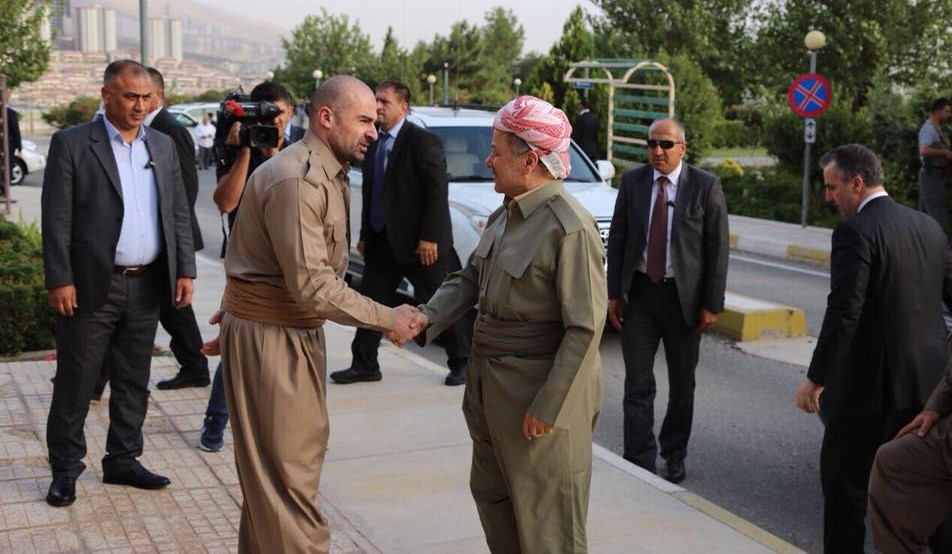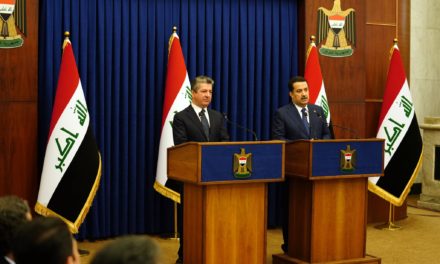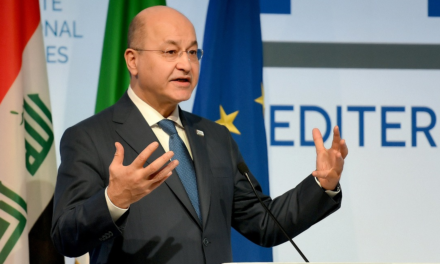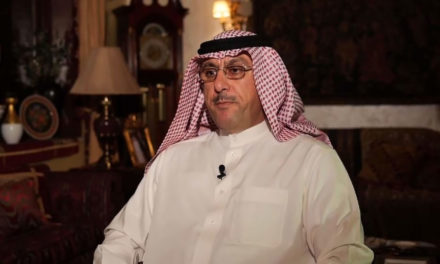(Photo: Shafaq News)
In his message on the eve of Kurdish New Year in 2011, Masoud Barzani, then president of the Kurdistan Region of Iraq (KRI), pledged radical reforms in several sectors of the region. Barzani also set a deadline of three to four months for the Kurdish people to see the results of the reforms. Almost a decade afterwards, Barzani’s son, took the office of the region’s premiership, the highest executive position in the KRI, and promised almost the exact same reforms. Nevertheless, Masrour Barzani was wise enough not to set a deadline for the promised reforms; he knows best that any radical reform requested by the people and pledged by officials, will lead to the end of their tribal and authoritarian rule.
The two main Kurdish ruling parties, namely the Kurdistan Democratic Party (KDP)-led by the Barzani family, and the Patriotic Union of Kurdistan (PUK)-led by the Talabani family, have been promising radical reforms for a long time, more precisely since 2009. At that time, they had already ruled the KRI for two decades, which brought only misery and suffering to the Kurdish people and enriched the ruling families and their closest elite circle. Since then, when a nationwide protest emerges, a strong opposition party is founded, or a new government cabinet is formed; a list of reforms in the economy, security and basic services sectors are on the cusp of being announced to the people, but without yielding any results.
The question arises: why do the Kurdish ruling parties always fail to enact any radical or meaningful reform? Or, as this article argues, why is such fundamental and needed reform not doable under the current ruling parties in KRI? To answer this question, one first should understand the dynamics of power, security apparatus, and the economy that form the main triangle of high-level politics in the KRI.
Reform in Kurdistan Region in its simplest definition would mean returning oil and non-oil revenues to the people, unifying the Peshmerga and other institutions of the security apparatus and taking them out of the control of political parties and individuals, promoting democracy, and having free and fair elections. However, the ruling parties’ survival is inextricably linked to the failure of all of the above-mentioned policies.
Since the formation of the Kurdistan Region as an entity in 1991, the KDP and the PUK have been maintaining their own militias, previously used for a decades-long insurgency against Saddam’s troops. After the fall of Saddam Hussein’s regime in 2003 and the emergence of Da’ish in 2014, the ruling parties’ armed forces modernized and were able to access more sophisticated weapons. However, the two parties have never subordinated the forces under the command of a government ministry. Instead, the command structures of the armed forces are still linked with the ruling political parties and individuals within the two parties.
After the Peshmerga forces engaged in the war against Da’ish and became a partner of the global anti-Da’ish Coalition, the Coalition partners planned radical reforms in the Peshmerga. The aim was to extricate them from the command of the KDP and the PUK and make the Peshmerga a unified, non-partisan military force. The reform plan, under the supervision of the Coalition forces, especially the United States, the United Kingdom, the Netherlands, and Germany, entitled “The Peshmerga in the Future,” was agreed upon by the Kurdistan Regional Government (KRG). By 2017, a comprehensive plan had been developed, and since then, the Peshmerga Reform Directorate has been operating within the Ministry of Peshmerga, to follow up and monitor the reform plan.
Although some superficial progress has been seen in the Peshmerga reform plan, the core of the problem remains. Still, the Barzani and Talabani families have absolute control over the Peshmerga forces and sometimes use the Peshmerga and other parts of the security apparatus to threaten each other, or as tools in their internal family turmoil, as eventuated during the Talabani family tensions last year. Once, a British top diplomat in KRI, who was closely involved in the reform plan, expressed this hopelessness, saying that the issue of partisan Peshmerga is “the heart” of the issue of whether they could succeed or not in the reform process. He also warned that if the Kurdish political parties who have their own partisan Peshmerga forces, did not abide by the reforms, the Coalition would stop providing support to the Peshmerga.
With all the focus of the international community and even of the voices inside the KRI on reforming the Peshmerga, almost no attention is given to the other half of the armed forces in the KRI, known as the Interior Forces of the KRI. These forces include; the Internal Security apparatus (Asaiysh), Police, Counter-Terror Forces, and other special forces. These forces are even more strictly aligned to the KDP and the PUK than the Peshmerga, as the members of these forces are selected after going through strict partisan filters. Moreover, the Interior Forces are a strong instrument in the hand of the ruling parties to maintain the status quo and maintain their power over government institutions and the economy.
Armed forces – the Peshmerga and Interior Forces – are crucial for the KDP and the PUK: through these forces, the parties can maintain their power over the economy and government institutions as well.
To fund their militias and party loyalists, both Kurdish ruling parties require huge funds. To that end, the KDP and the PUK have entirely monopolized the economy of the KRI from the oil industry to even small businesses in the region. Both parties own a wide network of companies, claiming proprietorship over some, such as the Nokan Group and Kar Group, and others being owned by individuals working for the ruling parties’ interests.
It is elusive to define the economic model of the Kurdistan Region, but it is easy to observe that the economy is steeped in corruption and clientelism, which makes the economy profitable for a tightly knit elite while closing the doors for the majority, making it impossible for the non-partisan business owners to thrive. The two ruling parties of the region are the primary beneficiaries of this model. Each party has its own network of companies, and some of them are affiliated with high-ranking officials within the parties. And even if the parties do not own the companies, evidence shows that they own some shares, for otherwise, independent entrepreneurs are not able to work freely.
The Nokan Group is the heart of the PUK’s business realm. Founded in the 1990s, the company is effectively run from the PUK’s General Management building in the city of Sulaymaniyah where they are looking after Nokan’s interests, which are ultimately those of the PUK.
The Nokan Group now has some 50 subsidiary companies from which – even when it does not have a share of the ownership – the PUK will claim the majority of profits at the conclusion of projects. Most of the subsidiary companies- which have been built up by Nokan, have a dummy director or operator assigned to them as to pretend that the company belongs to these people rather than to Nokan.
Nokan is considered to be the owner and stakeholder of the largest area of land in Sulaymaniyah, which is around six million meters square, representing 12 percent of all the land. The PUK is obtaining money through different channels, for example by selling agricultural land meant to be assigned to the public for residential purposes; occupying land without compensation, on which the rightful owner for some reason was unable to complete a project. In one instance, a piece of land in the center of Sulaymaniyah that was owned by 63 families was illegally sold to a private company for a large sum to build hotels, shops, and restaurants.
After the 4th congress of the PUK in December 2020, the son of the late Jalal Talabani, Bafel Talabani, was elected as the party’s co-president, and several officials from the Nokan Group were elected as members of the leadership council of the PUK. Bafel Talabani is currently in charge of business and economy in the Sulaymaniyah area, including the Garmyan and Raparin administrations. Hence, the Nokan Group is now controlled by Talabani and he has absolute authority over the Group and all the major investments in the area. It was recently revealed that Bafel Talabani has started to pressure Qaiwan Group to increase the PUK’s share in the company, asking for up to 50 percent of shares in the company’s capital and projects.
In the KDP-controlled zone of Erbil and Duhok provinces, there are several conglomerates that monopolize the market and investment. The main ones are Salahaddin Investment Company and Kar Group, which are affiliated with President Nechirvan Barzani, also the Ster Group, owned by Prime Minister Masrour Barzani, as he is the majority shareholder of the Group, according to Wikileaks, lawmakers, and media reports.
Ster Group was founded in Erbil as a small start-up some 20 years ago, and it has emerged as one of Iraq’s fastest-growing conglomerates. The group’s core expertise includes construction, environmental engineering, consultancy, insurance, security, energy, communication, general trading, tourism, information technology, and research. Ster Group also actively invests in a wide range of real estate projects. The group’s subsidiaries include Ster Company, SterKar Insurance Company, TarinNet, Ster Petroleum, Ster Security, Kani Water and SterLogic. Ster Group is now active in diverse sectors and has many international partners. Through Ster Petroleum, the group is also a leader in KRI’s oil and gas. Its interests range from gas stations to refining, storage, trading, and other oil-related services. For example, Ster Security Company provides most private security in KRG, thousands of trained security personnel, and armoured vehicles.
With a U.S. partner, Ster also founded TaninNet to create a wireless telecommunications network. It has expanded into fiber optics and numerous other information and communication technologies that are available in 175 Kurdish towns and cities. The group also includes two mineral water companies, Avian Water and Kani Water, brands synonymous with bottled water in KRI with their own high-tech bottling plants. Ster Group also acts as Coca-Cola’s official distributor in Iraq and invests in the famous brand’s factory. The group’s Ster-Kar Insurance, Iraq’s largest private insurance company, also has international partnerships.
Therefore, it is extremely difficult for any large business to operate without direct partnerships with party companies and proxies, whether by a local or foreign company, and party members openly admit this. A KDP-affiliated official stated to me: “The leadership of the KDP and the PUK paved the way for their close relatives and party members to engage in businesses”. A number of the party-affiliated businesses have become multibillion dollar operations, generating employment and revenue for party affiliates on a scale that rivals some of the major public sector institutions.
In the construction and transportation sector, both the KDP-controlled KAR company and the PUK-controlled Qaiwan group have become extremely profitable companies. These companies monopolize the two-mentioned sectors throughout the region, and they own large factories (which produce cement and iron) and refineries. Additionally, Qaiwan and KAR are active in southern Iraq and have signed multi-million-dollar contracts with Iraqi federal Ministries of Electricity and Oil. In addition to these party-controlled companies, the PUK and the KDP ensured that nearly all government contracts and projects were awarded to their associated companies, particularly in their respective sub-regional areas. Importantly, affiliation with one party or the other does not mean that the owners of the above companies are not free to generate income for their personal wealth. On the contrary, an essential part of the incentive structure that ensures the durability of the marriage between the party and the private sector is the promise of personal enrichment. The leaders of these companies have the opportunity to reap the rewards for themselves and for the party.
While dominating every inch of the security apparatus and the economy, having absolute control over the governmental institutions is a foregone conclusion for the KDP and the PUK. The only two things that can shake the foundation of the economy and security force and ultimately destabilize the two ruling parties’ authority are elections and protests. However, the ruling parties deal with both of these opportunities for change via the security apparatus and the economy. The KRG’s security apparatus has a reputation for using violence against anti-corruption protesters, and in the last decade the security forces belonging to the parties have killed 30 protesters. Regarding the elections, the KDP and the PUK are using a mixture of force and financial tools to secure a win in all elections. They literally purchase the loyalty of people, and their security apparatus threatens anyone who speaks out against them during the elections. However, the success of the last two mechanisms is relative and not always guaranteed. Yet the two ruling parties can use the security apparatus to maintain their power even after the election. For example, when the Kurdistan Parliament, the highest legislative body in the region, challenged the authority of the KDP over the governmental institutions back in October 2015, the KDP forces intervened and prevented the Kurdistan Parliament’s Speaker from entering Erbil, the seat of the parliament building. Consequently, the parliament was paralyzed and could not hold any sessions for almost two years.
For all the reasons mentioned above and until the time when the two Kurdish ruling parties give up their control over the security apparatus and the economy, any radical reform is impossible in the Kurdistan Region of Iraq and the two ruling parties use the reform rhetoric merely to prolong their authoritarian rule.
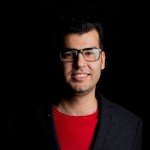
Renwar Najm
Renwar Najm is a journalist from Iraqi Kurdistan. He is currently a master’s student in Peace and Conflict Studies at the University of Kent and the University of Marburg.

